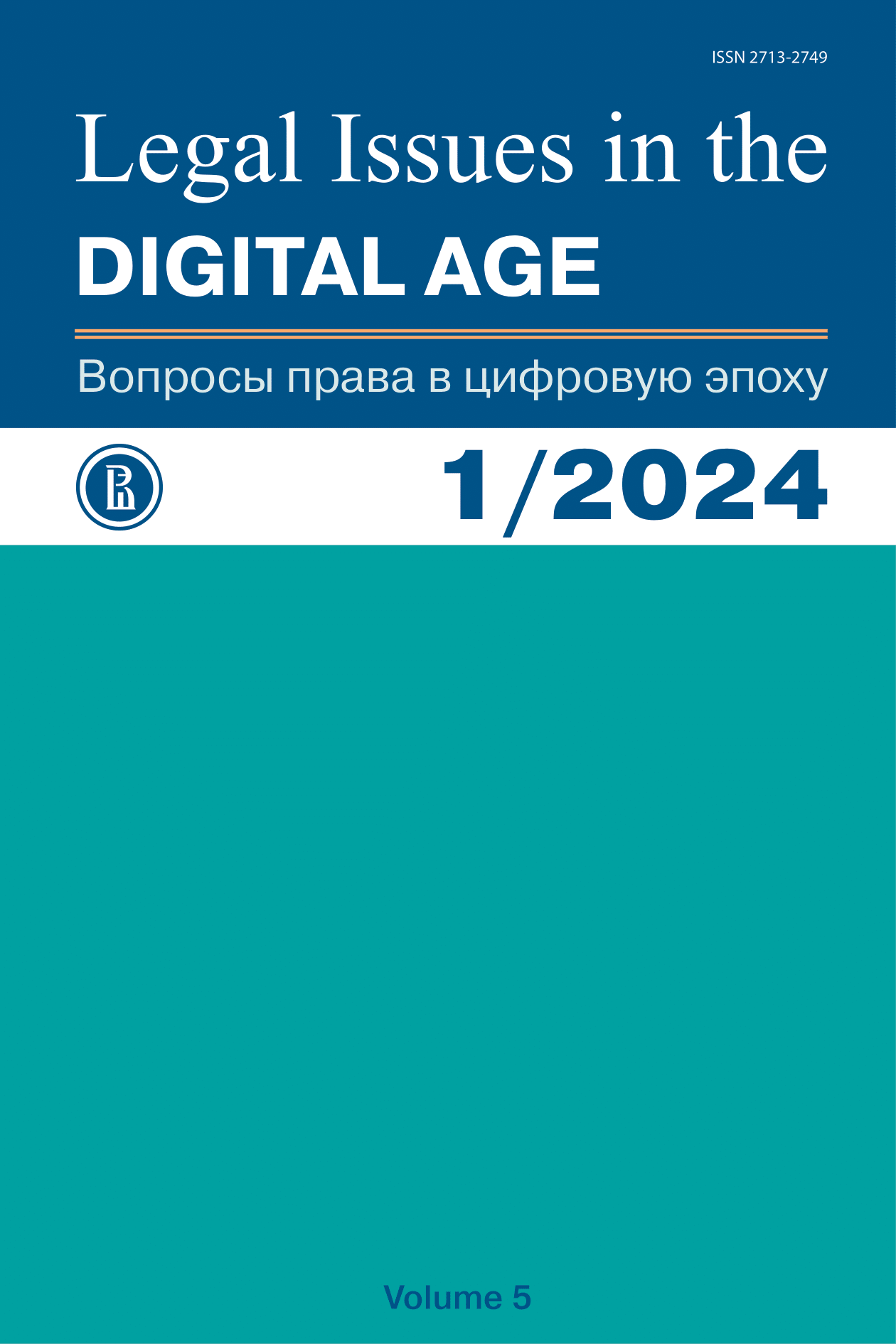Artificial Intelligence in the French Law of 2024
Abstract
The use of artificial intelligence in France is growing and intensifying in many areas, particularly in the field of justice. French President Macron has made it one of his government’s priorities to build on these assets and make France a world leader in AI. In parallel, the French government has deployed some efforts towards anticipating the regulatory challenges related to AI, the “National Strategy for Artificial Intelligence” launched as part of «France 2030». As an illustration of the developments in artificial intelligence and its specific regulation, the French parliament passed a law to ensure the proper conduct of the 2024 Olympic and Paralympic Games (Law N° 2023-380 of 19.05.2023). The law permits the use of the experimental “augmented video-protection” technology, which uses cameras equipped with AI systems to detect and report specific events in real time. French regulations begin already now in the area of justice and must continue in the fields of AI liability and intellectual property. AI is a source of fears, particularly for the respect of human rights, and requires a very elaborate legal and ethical environment that is flexible enough to avoid slowing down the development of AI. The AI Liability EU Directive complements the Artificial Intelligence Act by introducing a new liability regime that ensures legal certainty, enhances consumer trust in AI, and assists consumers’ liability claims for damage caused by AI-enabled products and services. But the new European AI Act does not resolve all issues that therefore need to be addressed nationally.
References
Benesty M. (2017) L’open data et l’open source, des soutiens nécessaires à une justice prédictive fiable? Journal of Open Access to Law, vol. 5, no. 1, pp. 1–11.
Bensamoun A. (2018) Stratégie européenne sur l’intelligence artificielle: toujours à la mode éthique. Paris: Dalloz, p. 122.
Bensoussan A., Bensoussan J. (2022) Harmoniser les règles civiles de responsabilité en matière d’IA en Europe. Revue Lamy droit de l’immatériel, novembre, p. 97.
Bensamoun A., Loiseau G. (dir.) (2019) Droit de l’intelligence artificielle. Paris: LGDJ, pp. 38–53.
Borghetti J.-S. (2019) Civil liability for Artificial Intelligence: what should its basis be. Romanian Journal of Society and Politics, no. 5, pp. 9–11.
Cadiet L. (dir.) (2018) L’Open data des décisions de justice. Rapport au Garde des sceaux. La documentation française, pp. 3–19.
Chen V., Philippe A. (2023) Clash of norms, judicial leniency on defendant birthdays. Journal of Economic Behavior & Organization, vol. 211, July, pp. 324–344. DOI: https://doi.org/10.1016/j.jebo.2023.05.002
Christian B. (2020) Alignment problem: machine learning and human values. New York: W.W. Norton, 476 p.
Ferrié S. (2018) Intelligence artificielle: Les algorithmes à l’épreuve du droit au procès équitable. Journal of Community Publishing Group, no. 11, p. 502.
Garapon A. (2018) La justice digitale. Paris: Presses universitaires de France, pp. 22–57.
Gautrais V., Moyse P. (2017) Droit et machine. Montreal: Éditions Thémis, pp. 3–39.
Goodman J. (2016) Robots in law: how AI is transforming legal services. London: Ark group, 148 p.
Haenlein M., Kaplan A. (2019) A brief history of artificial intelligence: the past, present and future of artificial intelligence. California Management Review, no. 4, pp. 5–14. DOI: https://doi.org/10.1177/0008125619864925
Larrieu J. (2013) La propriété intellectuelle et les robots. Journal International de Bioéthique, vol. 24, no. 4, pp. 125–133. DOI: https://doi.org/10.3917/jib.243.0125
Larrieu J. (2014) Le robot et le droit d’auteur. Mélanges en l’honneur d’André Lucas, Lexis Nexis, juin, pp. 11–43.
Marique E., Strowel A. (2019) La régulation des fake news et avis factices sur les plateformes. Revue internationale de droit économique, t. XXXIII, no. 3, pp. 383–398. DOI: https://doi.org/10.3917/ride.333.0383
Musch S., Borrelli M., Kerrigan C. (2023) The EU AI Act As Global Artificial Intelligence Regulation. August 23. SSRN: Available at: https://ssrn.com/abstract=4549261 DOI: https://doi.org/10.2139/ssrn.4549261
Prévost S. (2016) Loi pour une République numérique-décryptage. Paris: Dalloz, pp. 2–9.
Villani C. (2018) Donner un sens à l’intelligence artificielle. Rapport au Premier ministre. Documentation française, pp. 5–25.

Copyright (c) 2024 Alain Duflot

This work is licensed under a Creative Commons Attribution-ShareAlike 4.0 International License.
Authors who publish with this journal agree to the Licensing, Copyright, Open Access and Repository Policy.









